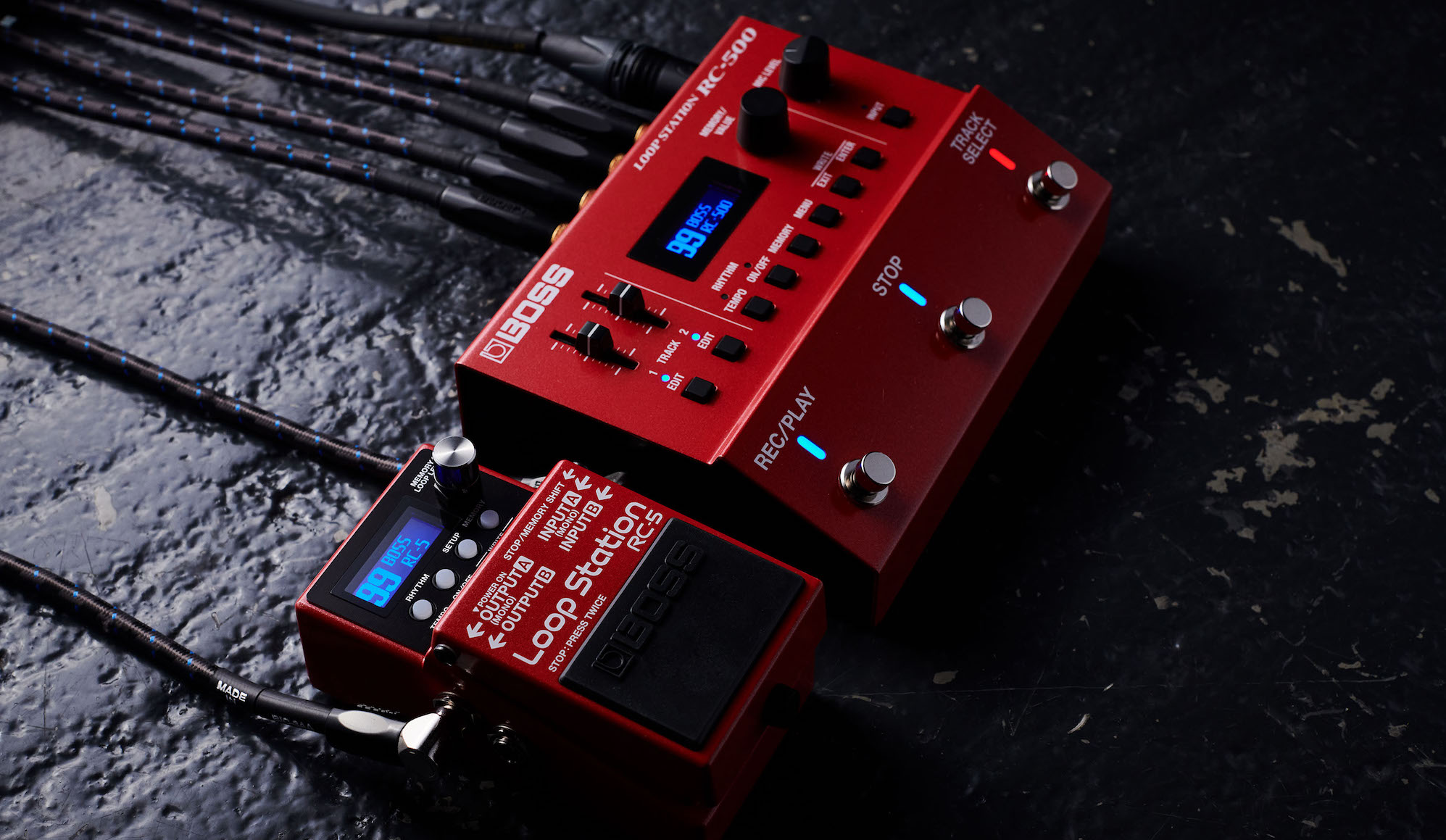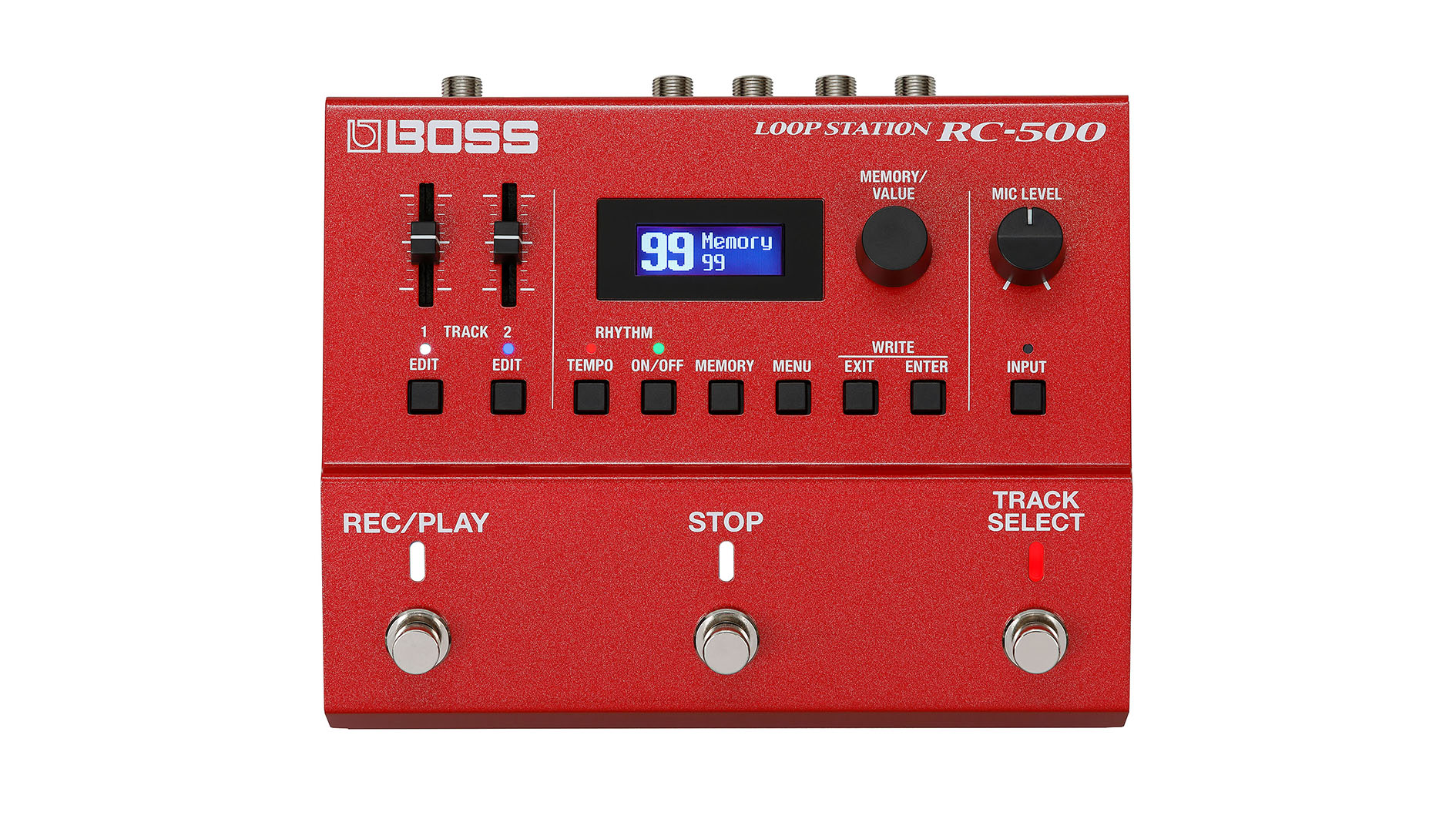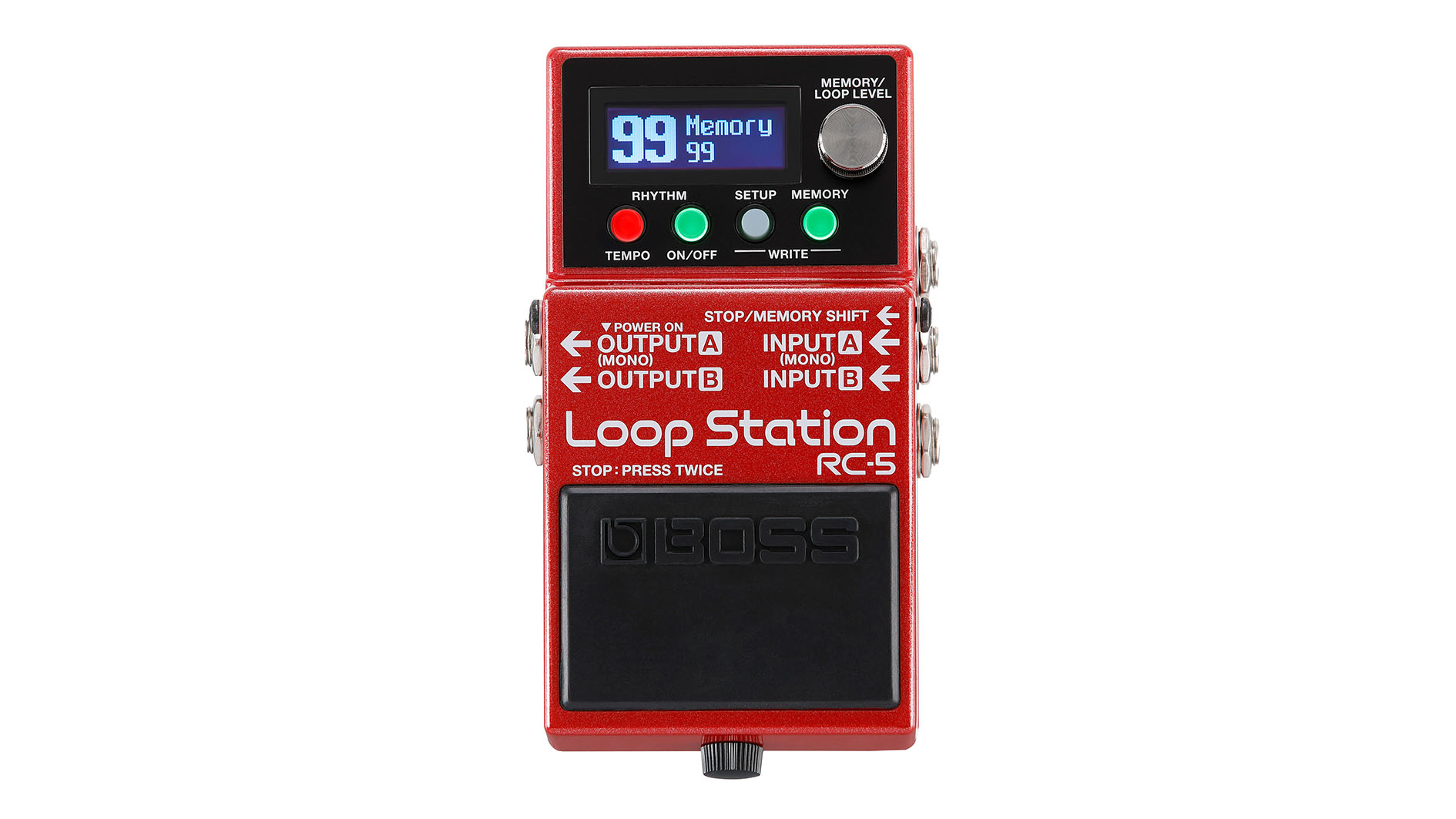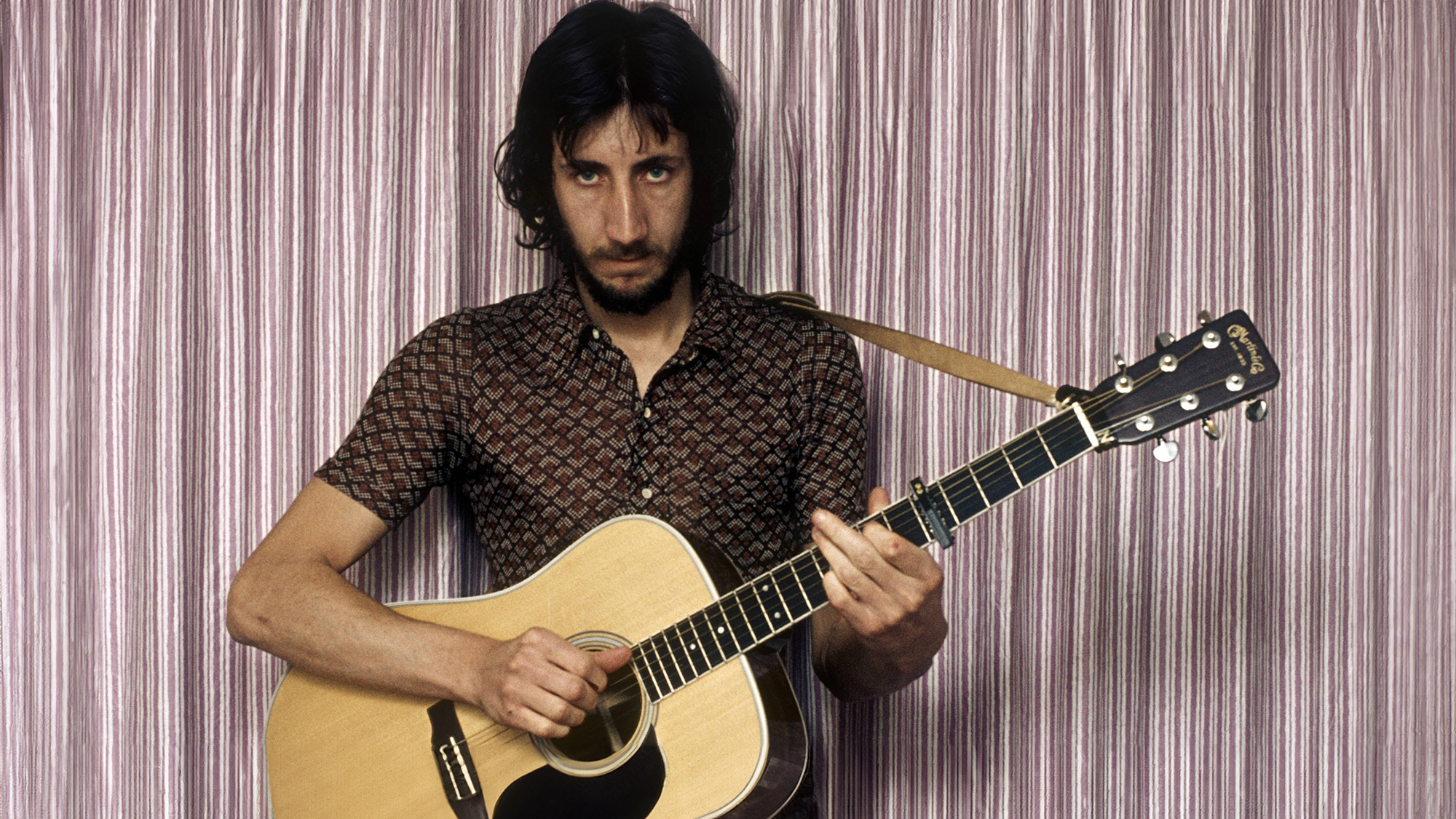Boss Unveils New RC-5, RC-500 Loop Station Pedals
Boss's new top-of-the-line loopers feature 13 hours of stereo recording, 57 rhythms and a whole lot more.

Boss has unveiled its new RC-5 and RC-500 Loop Station pedals.
Both the RC-5 and RC-500 feature 32-bit AD/DA and 32-bit floating-point processing, onboard rhythms, phrase memories for storing loops, backlit displays, 13 hours of stereo recording and external control support options via footswitches, an expression pedal or MIDI.
The RC-5 features full stereo I/O, an LCD backlight that changes color to indicate recording, overdub and playback states, and a multi-function parameter knob for navigating system settings, rhythms and more.
Direct control of many of the RC-5's assignable functions can be attained with the pedal's two external footswitches, while continuous adjustments can be made with an expression pedal. The RC-5 is also MIDI-compatible, via included TRS jacks.
The RC-500 offers two tracks, the same color-changing LCD backlight as the RC-5, plus track faders and a mic level knob for easy access to volume control while performing. Three built-in footswitches - configured for basic operations by default, but capable of being reassigned to other tasks - also come aboard.
Users can connect mono/stereo instruments, pedal effects or a mic via the RC-500's dedicated XLR input, which also comes with a phantom power switch for condenser microphones.
The RC-500 also features a variety of Loop FX, such as scatter, shift, repeat and vinyl flick.
All the latest guitar news, interviews, lessons, reviews, deals and more, direct to your inbox!
Both pedals feature a reverse function and 57 rhythms, each with A/B variations, plus a number of drum kits - 7 in the RC-5 and 16 in the RC-500.
The RC-5 and RC-500 also both feature 99 phrase memories for loop storage. These can then be backed up to a computer via USB.
The Boss RC-5 and RC-500 Loop Station pedals are available now for $199 and $349, respectively.
For more info on the pedals, stop by boss.info.



Jackson is an Associate Editor at GuitarWorld.com and GuitarPlayer.com. He’s been writing and editing stories about new gear, technique and guitar-driven music both old and new since 2014, and has also written extensively on the same topics for Guitar Player. Elsewhere, his album reviews and essays have appeared in Louder and Unrecorded. Though open to music of all kinds, his greatest love has always been indie, and everything that falls under its massive umbrella. To that end, you can find him on Twitter crowing about whatever great new guitar band you need to drop everything to hear right now.


